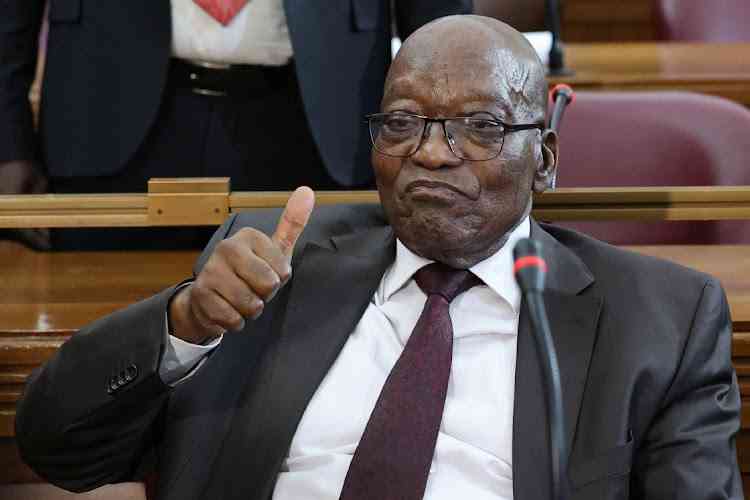
In last week’s instalment I pointed out that Gabon President Ali Bongo had set a pyre of ivory aflame on June 27 in a symbolic warning to poachers: “We will fight to protect our elephants”.
The public burning served a dual purpose, according to conservationists — both demonstrating Gabon’s zero-tolerance policy for wildlife crime, and curtailing the temptation to sell the government-seized stockpile on the black market. Zambia “lost” about three tons from its government stock hold recently.
Bongo’s bonfire emulated a July 2011 Kenyan bonfire. Activists in Kenya were galvanised last year by the killing of a matriarch elephant named Khaija, who poachers slaughtered near Kenya’s Samburu National reserve.
Khaija had been treated just two weeks earlier for a bullet wound from a different attack. With her death, Khaija left behind eight orphan elephants.
That July, Kenyan President Mwai Kibaki burned five tons of confiscated ivory. The ivory in Kenya had been selling on the black market for $1 500 per kg, according to Kibaki.
True the African elephant population is in serious trouble. Despite the ban in international trade of ivory under the Convention on International Trade in Endangered Species (Cites), an international trade agreement to protect wildlife from exploitation, in 1989, trade has been flourishing.
Investigators have seized 24,3 tons of illegally harvested ivory this year alone taken from an estimated 2 500 elephants, according to the same report — twice the amount of ivory seized in 2010 and more than the United Nations has ever seized since it started keeping records in 1990.
Inconceivable, isn’t it? And elephants’ futures look no brighter in 2012 with Zimbabwe currently holding 52 000kg of raw ivory. Much of the ivory makes its way through Cairo, Egypt or Nairobi, Kenya direct to Malaysia and of course Asia, where it is popular in China, Vietnam, Thailand and Japan.
- Chamisa under fire over US$120K donation
- Mavhunga puts DeMbare into Chibuku quarterfinals
- Pension funds bet on Cabora Bassa oilfields
- Councils defy govt fire tender directive
Keep Reading
The wildlife trade-monitoring network, Traffic, estimates ivory sales have doubled in China since 2004.
The same Traffic report found that only one tenth of the shops they surveyed selling ivory in China had licenses to do so.
But, problems in Africa are largely due to inadequate law enforcement capacity and training; inadequate laws and/or policies; insufficient resource management capacity; a lack of efficient co-operation at national and sub-regional levels between agencies (particularly enforcement and customs officers); and lack of collaboration between exporting, transit countries and their counterparts in China.
So, it is essential to involve all the players along the wildlife trade chain, including the private sector, to ensure their operations are in compliance with international Conventions such as Cites and the Convention on Biological Diversity, and with national environmental and social laws and regulations in China and Africa.
Specific support to encourage sustainable trade and eliminate illegal trade should become a key element of China’s aid policy in Africa. Greater resources are needed for monitoring and enforcement measures, such as cargo inspection.
Currently less than 2% of cargo traffic from Africa is inspected, enabling criminals to conceal the true origin, ownership and content of container cargo.
Chinese based in Africa in general, and Zimbabwe in particular, need to be made aware of environmental laws and policies, while China should develop and implement well researched demand reduction campaigns to influence consumer behaviour with a view to reducing demand for products of illegal origin.
David Newton, Head of Traffic East Southern Africa argued there has never been a greater urgency for China and Africa to put into action their commitments towards environmental sustainability and to direct significant resources towards addressing rising concerns over the levels of illegal and unsustainable trade in wildlife.
There is no doubt China is Africa’s largest trading partner, with overall trade values estimated to be over one trillion Yuan (US$160 billion) per annum.
The rising influence of China within Africa creates multiple opportunities for growth in trade between key Africa and China, including within the wildlife trade sector—the trade of wild fauna and flora products, including timber and fisheries.
Hence, sustainable utilisation of Africa’s wildlife resources can lead to positive development and growth for trading partners, while unsustainable wildlife trade depletes Africa of its natural wealth, and illegal trade inevitably leads to a growth in organised criminal activities, with the potential to create political instability.
Although the rapid growth in Chinese investment and aid in Africa has largely been welcomed, there have always been concerns over the levels of unregulated trade in natural resources, including those involving timber and fisheries, while poaching of Africa’s elephants is running at record levels.
It is hoped, however, that the recent 5th Ministerial Conference of Forum on China-Africa Co-operation provided an opportunity for countries to transform the wildlife trade dynamics from Africa to China, leading to a significant reduction in illegal trade and supporting the sustainable trade in Africa’s wild plants and animals.
In this regard, should Africa burn its ivory stockpiles as a statement of intent against rising elephant poaching? “WWF supports Gabon’s decision and sees the move as an indication of the country’s commitment to curbing elephant poaching and the illegal ivory trade,” said Stefanie Conrad, WWF Central Africa Regional Programme Office Representative.
The decisions taken at last week’s Cites Standing committee could perhaps ratchet up pressure on a number of countries to be held accountable over their failure to deal with rampant poaching and illegal trade, but no sanctions or punitive measures were agreed.
Perhaps with elephant poaching and illegal trade in ivory reaching new heights, we should not be shy about using Cites trade suspensions as an international tool to prevent a full-blown elephant crisis.
. [email protected] twitter.com/wisdomdzungairi











